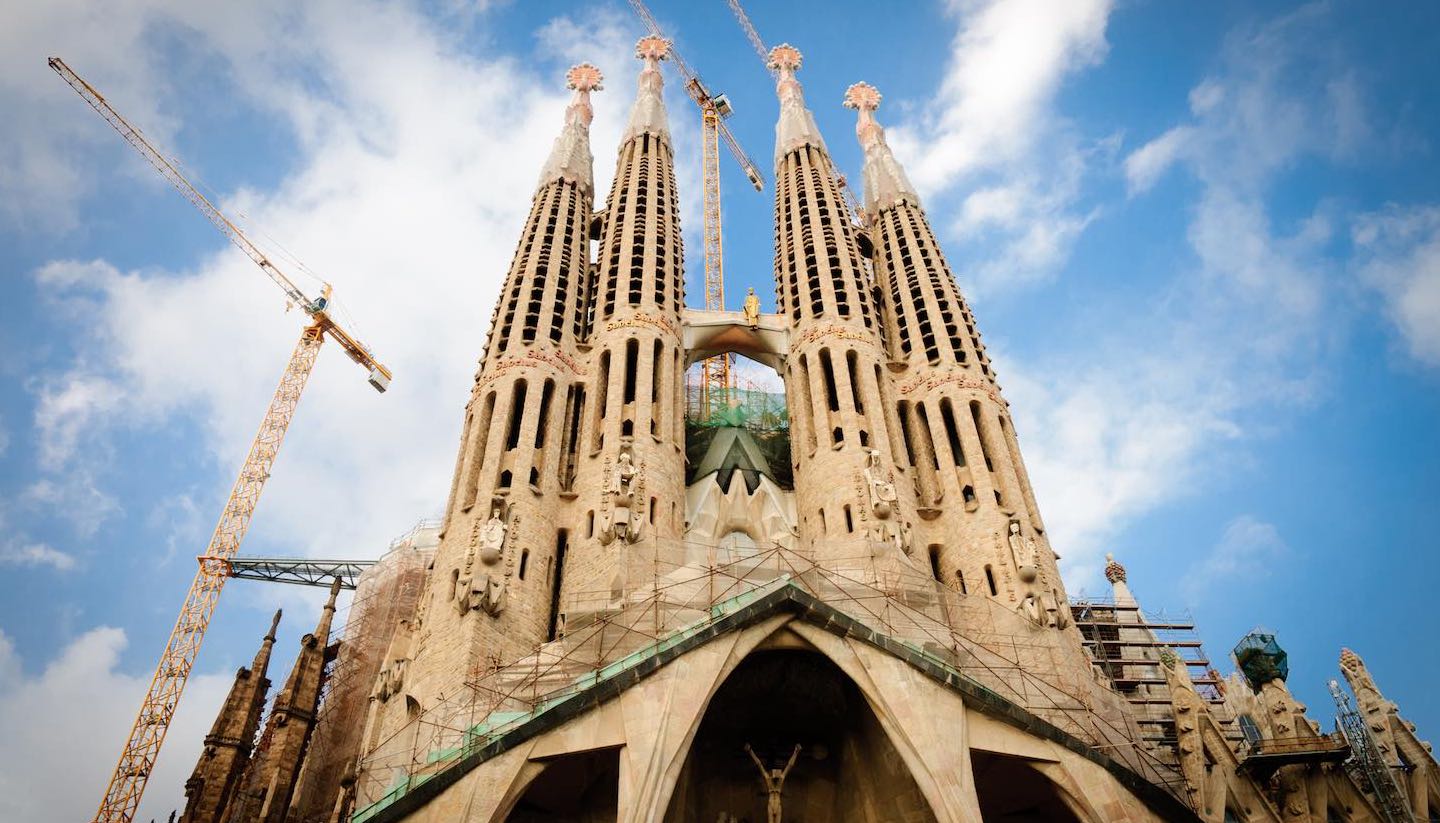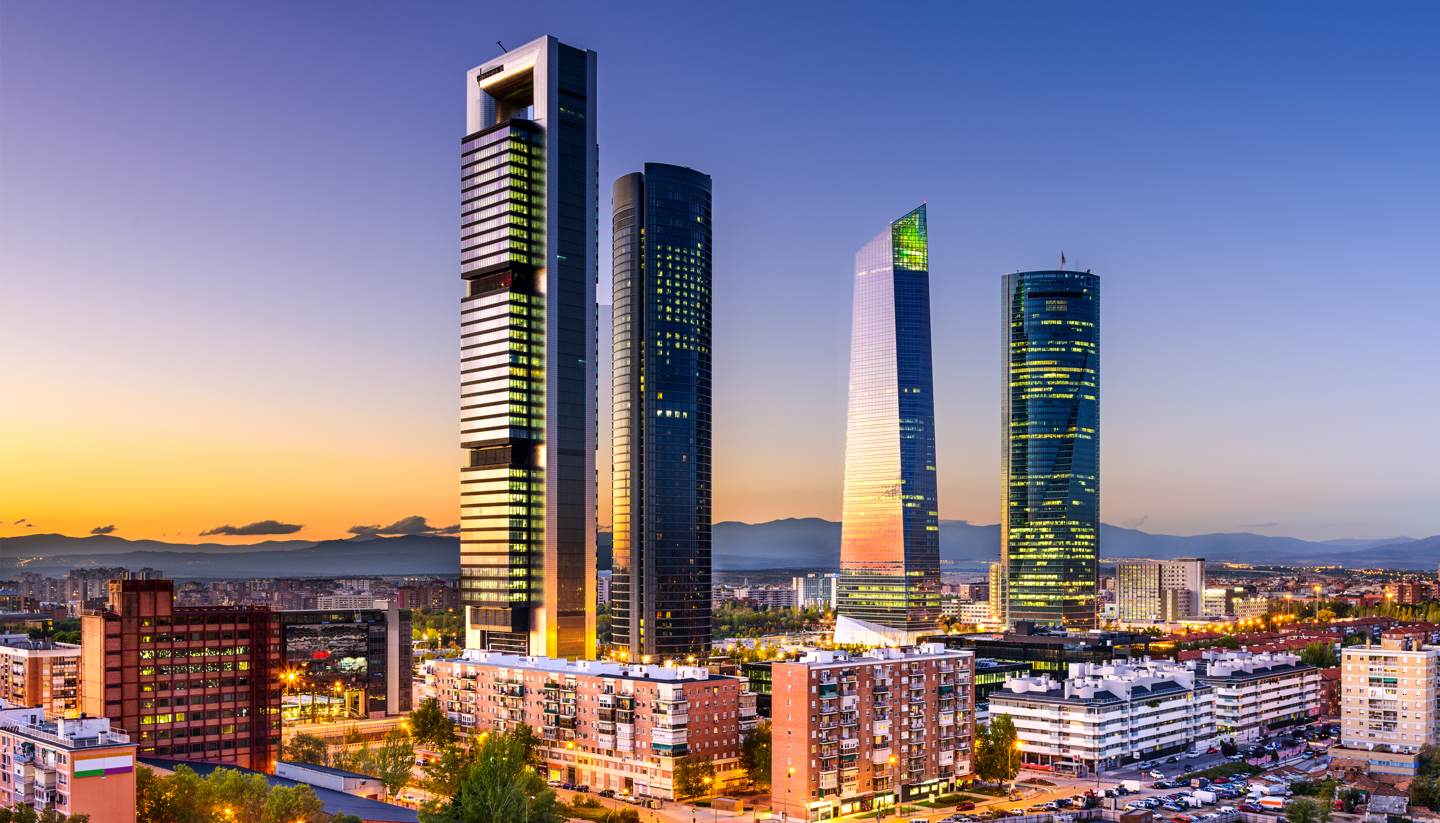Spain History, Language and Culture
History of Spain
The human history of the area now known as Spain is a long one. Remains found in the Atapuerca Mountains indicate that man first arrived in Spain almost one million years ago. The Phoenicians, Greeks, Romans and Visigoths would all later settle here and, in the 8th century, Muslims came to the Iberian Peninsula, kick-starting a centuries-long power struggle between Muslims and Christians, with the latter group eventually establishing the upper hand in the 15th century.
In terms of global influence, Spain’s heyday came between the 16th and mid-17th centuries. During this era, the Spaniards led a charge on the newly discovered New World, hijacking valuable minerals and metals to bankroll the Crown. The Spanish Empire soon became the most extensive the world had ever seen, encompassing territory across Europe, the Americas, Africa and Asia. However, the superpower began to fade in the early 1800s when Napoleon took over Spain. An atmosphere of political instability and uncertainty gave rise to anti-colonial revolts, while many of the country’s colonial conquests broke free.
In the 1930s, Spain suffered tremendously from a civil war, resulting in massacres of civilians and prisoners all over the nation. The war cost hundreds of thousands of lives and ended in a nationalist dictatorship, led by General Francisco Franco. During his 36-year rule, Spain remained largely isolated from the outside world – both economically and culturally.
The death of Franco in 1975 marked a new era for Spain: a rapid transition from dictatorship to liberal democracy and the return of the Bourbon monarch headed by Prince Juan Carlos. In 1981, members of the Guardia Civil attempted a coup d’etat but failed, thanks to the intervention of the King.
Spain joined the European Union (then known as European Economic Community) in 1986 and adopted the Euro in 1999. Since hosting the 1992 Olympics and Seville Expo, the country has undergone significant progress in development, including social reforms such as the legalisation of same-sex marriage, the modernisation of divorce laws and an increase of the minimum wage, as well as infrastructural improvements.
Like many of the European states, Spain was hit hard by the 2008 recession and required a rescue package to help keep its shaky banking sector afloat. A decade later, the economy of Spain is growing again thanks to its vast tourism industry, an active construction sector and a rise in public expenditure.
In 2017, Catalonia declared it would become independent, however this did not receive recognition from the international community.
Did you know?
• In 2015, more than 100 years after building began, Gaudí's Sagrada Família basilica in Barcelona entered its final stage of construction.
• While other countries have the tooth fairy, Spain has Ratoncito Pérez, a mouse who exchanges lost teeth for gifts.
• The United Nations have predicted that by 2050, Spain will have the oldest population in the world, with 40% of its citizens over 60.
Spain Culture
Religion in Spain
There is no official religion in Spain. Approximately 67% of the population is Roman Catholic, while 28% has no religion. The young generation are less religious than before, but most still celebrate religious festivals. There are approximately 1 million Muslims (2.3% of the country) living in Spain.
Social Conventions in Spain
Spanish life has undergone rapid change in recent decades and stricter religious customs have been superseded by more modern ways, particularly in the cities and among women. In spite of this, traditions remain strong; hospitality, chivalry and courtesy thrive. Handshaking is the customary form of greeting between men, while women (outside of a business context) are greeted with a fleeting kiss to either cheek (left then right).
Spaniards eat late; lunch around 1400-1530; the evening meal 2100-2300. The Spanish have two family names; the maternal surname follows the paternal, but is rarely used outside a formal context. Smoking has long been banned in offices, shops, schools, hospitals, cultural centres and on public transport, but in 2011 that ban was extended to all bars, cafes and restaurants. Spain now has one of the toughest anti-smoking laws in Europe.
Language in Spain
The official language is Spanish (Castilian). Other languages spoken in the first language in Spain include Euskera (in Basque Country, northeastern Spain), Catalan (in Eastern Spain, with variations spoken in Valencia and the Balearics) and Galician (in the northwest). There are also various regional dialects, but you’ll have no problems getting around Spain with knowledge of Castilian Spanish. English is not commonly used, so be sure to pick up some basic Spanish words before your trip.
Phrases
- Beer = Cerveza
- Closed = Cerrado
- Danger = Peligro
- Do you speak English? = Hablas inglés?
- Doctor = Médico
- Eight = Ocho
- Eighty = Ochenta
- Entrance = Entrada
- Exit = Salida
- Fifty = Cincuenta
- Five = Cinco
- Forty = Cuarenta
- Four = Cuatro
- Friday = Viernes
- Goodbye = Adios
- Hello = Hola
- Hotel = Hotel
- How are you? = Qué tal? / Cómo estás?
- How much does it cost? = Cuantó es? / Cuánto cuesta?
- I'm very well = Estoy muy bien
- I don't understand = No entiendo
- I feel ill = Me siento mal
- Menu = Carta / Menú
- Monday = Lunes
- My name is = Me llamo ...
- Nine = Nueve
- Ninety = Noventa
- No = No
- One = Un / uno / una
- One Hundred = Cien
- One Thousand = Mil
- Open = Abierto
- Please = Por favor
- Restaurant = Restaurante
- Saturday = Sábado
- Seven = Siete
- Seventy = Setenta
- Six = Seis
- Sixty = Sesenta
- Sunday = Domingo
- Ten = Diez
- Thank you = Gracias
- Thirty = Treinta
- Three = Tres
- Thursday = Jueves
- Today = Hoy
- Toilets = Servicios
- Tomorrow = Mañana
- Tuesday = Martes
- Twenty = Veinte
- Two = Dos
- Wednesday = Miércoles
- Where is ? = Dónde está ...?
- Wine = Vino
- Yes = Sí



